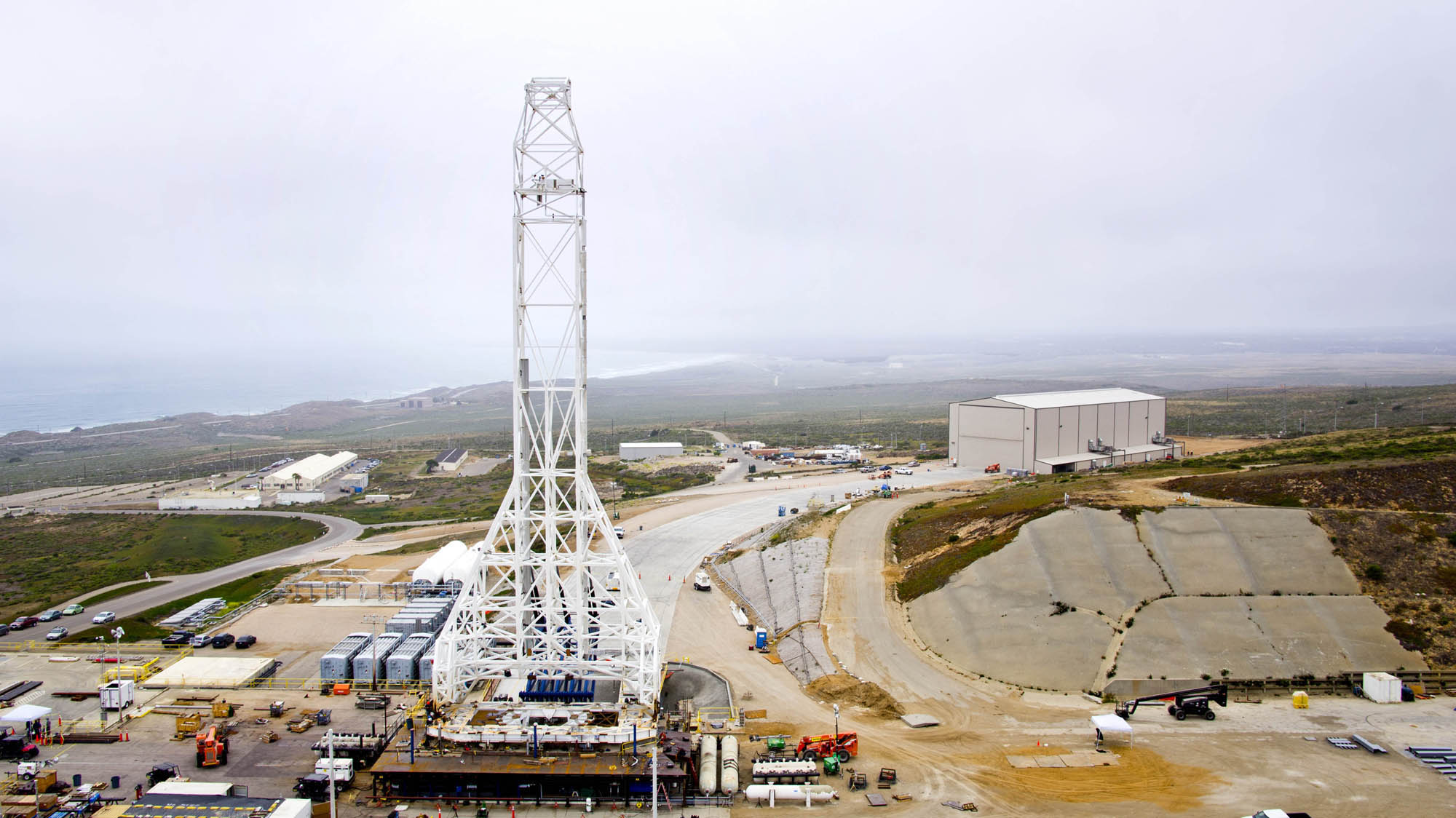SpaceX's Return-to-Flight Rocket Launch Slips to Saturday

SpaceX's first Falcon 9 rocket launch since an explosion in September will now lift off no earlier than Saturday (Jan. 14), a five-day delay that's due to high winds, rain and schedule conflicts at the company's California launch site.
SpaceX representatives announced the launch delay on Twitter on Sunday (Jan. 8). At the time, SpaceX was targeting a Monday launch of Falcon 9 from a pad at California's Vandenberg Air Force Base to send 10 Iridium NEXT satellites into orbit for satellite operator Iridium.
"Launch moving due to high winds and rains at Vandenberg," SpaceX representatives wrote in the Twitter post. "Other range conflicts this week results in next available launch date being Jan 14."
SpaceX aims to return its Falcon 9 rockets to flight more than four months after a Falcon 9 carrying another commercial satellite, Israel's Amos-6 communications satellite, was destroyed Sept. 1 in an explosion during a routine pre-launch test at the company's Florida launchpad at Cape Canaveral Air Force Station. [Dramatic Video of SpaceX's Rocket Explosion]
In a Jan. 2 statement, SpaceX representatives stated that the explosion occurred when the aluminum liner of a composite overwrapped helium tank inside the Falcon 9 rocket's upper stage liquid oxygen tank buckled.
This buckling allowed liquid oxygen propellant to pool between the aluminum liner and carbon overwrap covering, according to SpaceX. The pooling propellant ultimately ignited, rupturing the helium tank and leading to the loss of the Falcon 9 on the pad. The company is modifying its helium-loading processes to avoid similar problems in the future.
Last week, on Jan. 6, the Federal Aviation Administration issued a launch license to SpaceX for its upcoming Falcon 9 mission. That announcement came one day after Musk announced via Twitter the success of a Falcon 9 engine static test firing at its launchpad, a standard SpaceX test performed before each Falcon 9 mission.
Get the Space.com Newsletter
Breaking space news, the latest updates on rocket launches, skywatching events and more!
Email Tariq Malik at tmalik@space.com or follow him @tariqjmalik. Follow us @Spacedotcom, Facebook and Google+. Original article on Space.com.
Join our Space Forums to keep talking space on the latest missions, night sky and more! And if you have a news tip, correction or comment, let us know at: community@space.com.

Tariq is the Editor-in-Chief of Space.com and joined the team in 2001, first as an intern and staff writer, and later as an editor. He covers human spaceflight, exploration and space science, as well as skywatching and entertainment. He became Space.com's Managing Editor in 2009 and Editor-in-Chief in 2019. Before joining Space.com, Tariq was a staff reporter for The Los Angeles Times covering education and city beats in La Habra, Fullerton and Huntington Beach. In October 2022, Tariq received the Harry Kolcum Award for excellence in space reporting from the National Space Club Florida Committee. He is also an Eagle Scout (yes, he has the Space Exploration merit badge) and went to Space Camp four times as a kid and a fifth time as an adult. He has journalism degrees from the University of Southern California and New York University. You can find Tariq at Space.com and as the co-host to the This Week In Space podcast with space historian Rod Pyle on the TWiT network. To see his latest project, you can follow Tariq on Twitter @tariqjmalik.
